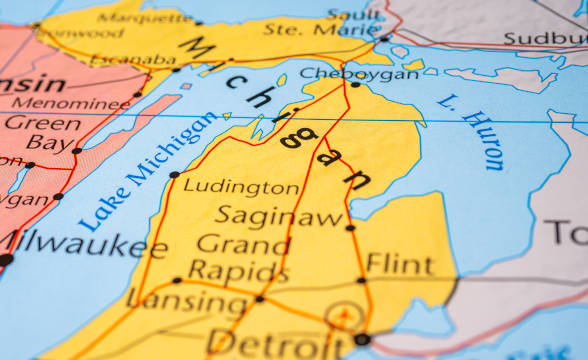During responsible gambling month, September, the Michigan Gaming Control Board (MGCB) urged for raising awareness about responsible gambling among students.
MGCB Joins AGA to Raise Awareness of Responsible Gambling
Last week, the regulator in Michigan announced it joined forces with the American Gaming Association (AGA) to help raise awareness of responsible gambling. The focus of the new initiative to raise awareness comes during Responsible Gambling Month. Citing statistics by the National Council on Problem Gambling, the MGCB revealed that 60% to 80% of high school students admitted to gambling for money in the last year. What’s more, the research pointed out that between 4% and 6% of high school students are likely addicted to gambling activities. Similar research by the platform EarthWeb reaffirms NCPG’s research. According to EarthWeb, approximately 6% of American college students are impacted by problem gambling.
“As fall sports begin, it’s a great time to remind everyone to have fun responsibly when wagering on sporting events throughout the season.”
Henry Williams, executive director at the Michigan Gaming Control Board
Henry Williams, the MGCB’s executive director, commented on the topic. He acknowledged that the MGCB joined forces along with AGA just in time for Responsible Gambling Month and the start of the sports season. Williams explained that it will be beneficial to remind everyone to enjoy wagering on sporting events responsibly. The MGCB’s executive director outlined the Board will use its social media channels this month to help raise awareness of responsible gambling.
Signs Reveal If a Young Adult Suffers from Problem Gambling
Williams outlined that parents, siblings or friends may spot signs of problem gambling in young adults and teens. According to him, such signs include the possession of gambling materials such as poker chips, cards or dice. Some teens or young adults may also gamble with money that should be used for school-related activities, while others may skip class or other activities to participate in gambling, says the Board’s executive director. In some cases, young adults or teens may even steal or sell personal items to gamble, warns Williams. Additionally, he warned that although teens or young adults cannot legally gamble via the internet or by visiting casinos, some youngsters may turn to illegal gambling operators.
“While they can’t gamble legally on the internet or at a casino, young people may turn to illegal gambling options not authorized under Michigan law,”
adds Henry Williams
The current legal age for participation in gambling activities in Michigan is 21. Adults, age 21 or older can legally wager via sports betting websites, online gambling casinos or by visiting a brick-and-mortar venue. The MGCB reminded that it is a responsibility of the licensed operators to adhere to know-your-customer (KYC) rules and regulations that are in place to prevent underage individuals from participating in gambling activities.


